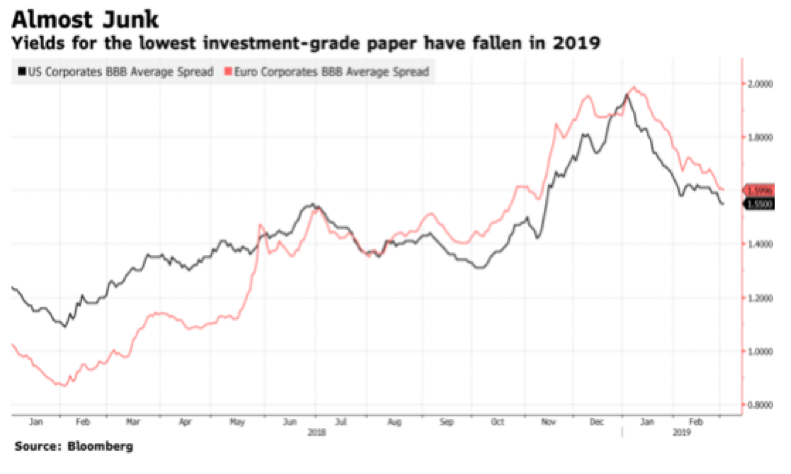Just after the market closed on Tuesday, Federal Express issued an earnings warning. Specifically, it reported declining international revenue and blamed it on deteriorating macroeconomic conditions and weaker global trade prospects. If Micron Technology too misses earnings estimates (will be reported later today), then we may have on our hands two flagships that not only miss earnings but also issue warnings on deteriorating growth prospects. As we have previously reported, we expect that earnings will not be good during Q1 of this year.
Such developments make us think what might happen in a reversal of the market’s upswing fortune, and contemplate what might trigger that and the hedging alternatives the portfolios may need.
Here are three possible scenarios that might trigger such reversal:
- Q1 earnings miss badly the estimates
- Trade negotiations with China go badly at a time when Chinese banks need close to $300 billion in new capital due to bad loans and deteriorating economic conditions in China
- Corporate bonds downgrades
While the first and second possibilities above have been discussed in the financial literature for several weeks, our concern is with the debt instruments that are just one notch above junk.
The fact is that due to unorthodox monetary policies (reality is that we cannot afford orthodox policies) and the cheapening of credit facilities, corporate debt has experienced a dramatic surge with the increased supply of corporate bonds that are rated BBB (barely investment-grade). This surge leaves the market vulnerable if economic reversal takes place, because there is high probability that a good number of them will be downgraded, which will force bond managers to offload them.
As the graph below shows, both US and EU high yield/junk bonds have enjoyed a drop in their yields so far in 2019, and that has poised them to be enjoying good returns so far this year. However, a reversal of economic fortunes will push their prices lower resulting not only in possible capital losses but also and most importantly in an exodus/massive sale by funds around the globe whose regulations prohibit them from holding junk bonds.
The reality is that BBB-rated bonds represent on average 45 percent of US and EU mutual funds holdings. If credit rating cuts take place, then as the BIS (Bank of International Settlements a.k.a. the central bank of central banks) recently warned, we may be facing a storm that has been obscured by the rally in junk bonds in 2019.
Our humble suggestion is that appropriate hedging measures be taken in portfolios to protect them as much as possible from such downturn.

